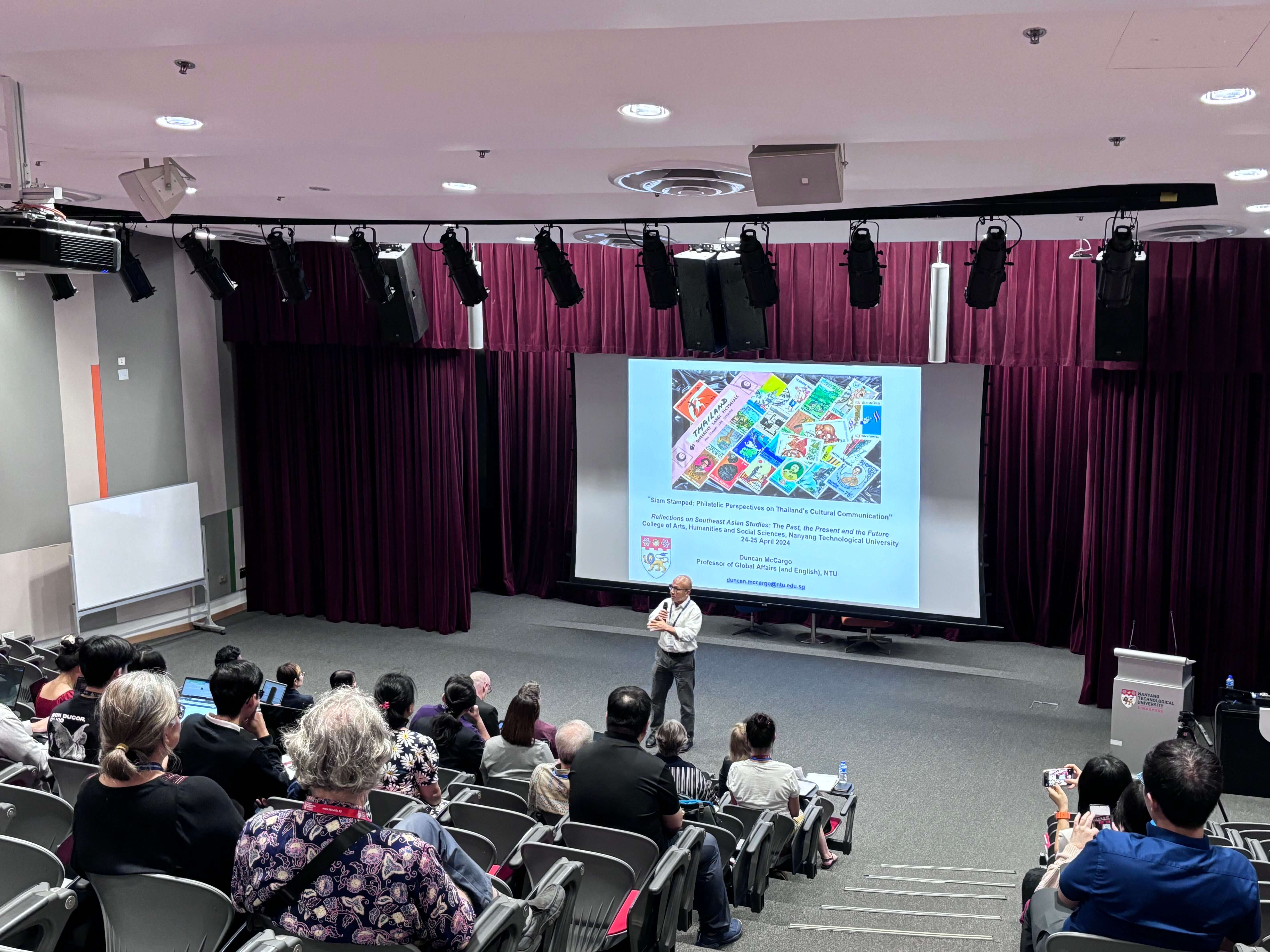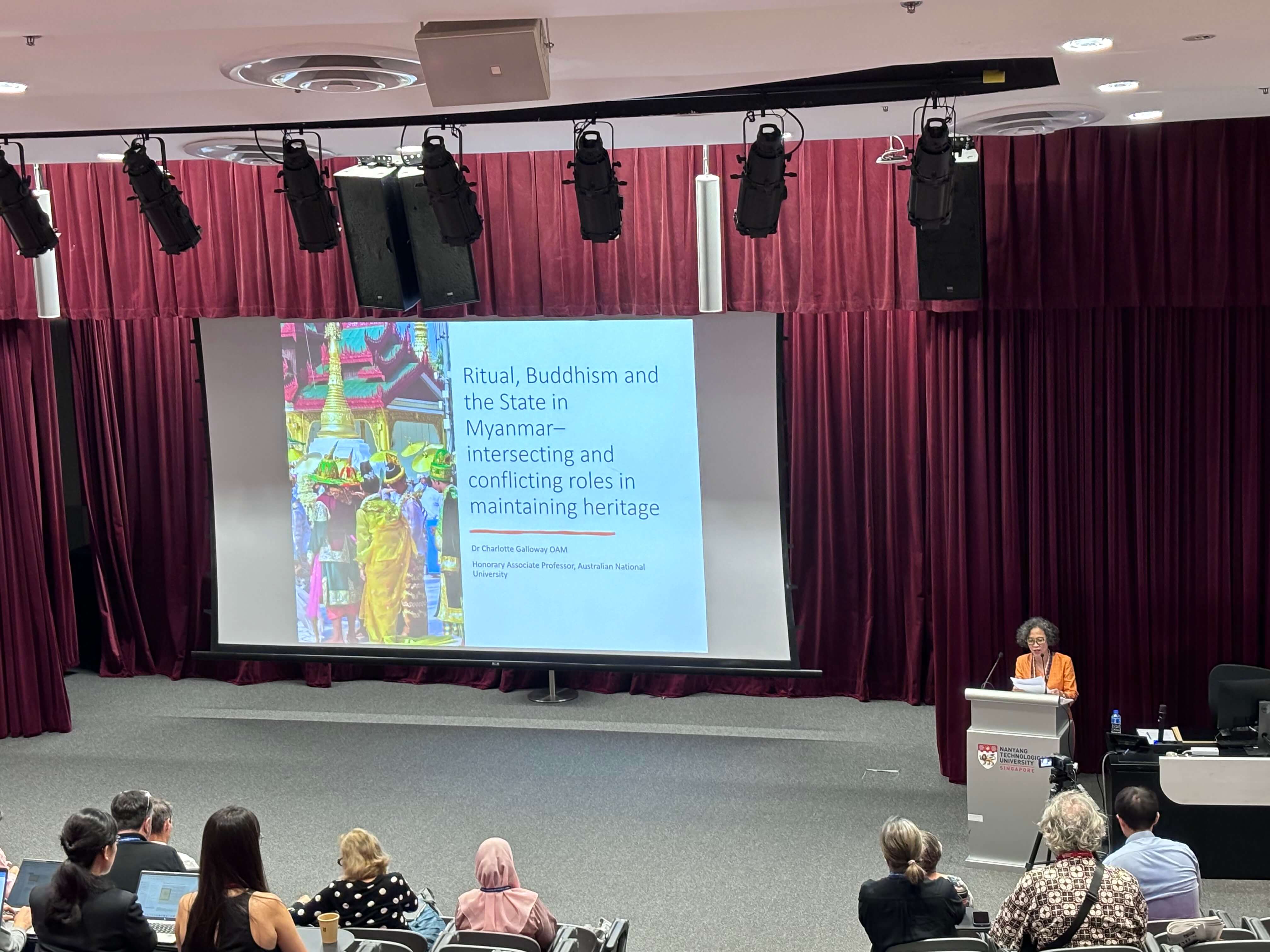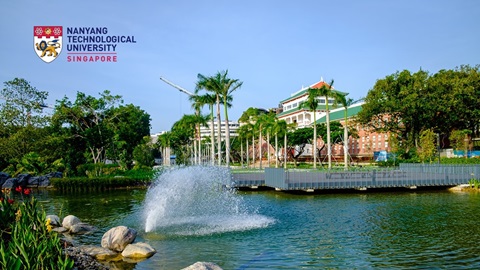Insights from the Southeast Asian Symposium 2024: A Journey into Culture, History, and Politics
Organised by the School of Humanities, Wee Kim Wee School of Communication and Information, and the College of Humanities, Arts and Social Sciences.
The Southeast Asian Symposium was held from 24 to 25th April 2024 at the SHHK Auditorium.
Aptly titled “Reflections on Southeast Asian Studies: The Past, Present and Future”, the symposium featured academics from various fields sharing their research on topics such as culture history, media, and politics in the rich tapestry of Southeast Asia. Spearheaded by CoHASS Visiting Professor Dr. Pattaratorn Chirapravati, the symposium provided a platform for academics to showcase their research and exchange invaluable insights.

Giving the opening address on 24th April, Professor Joseph Liow, Dean of the NTU College of Humanities, Arts, and Social Sciences, highlighted the wealth of expertise in Southeast Asian studies at NTU. He welcomed the initiative to showcase the excellent work done by academics at NTU, with research covering politics, history, religion, economics, communications, and art history in the Southeast Asian region. In his address, Professor Liow emphasized the importance of Southeast Asian research as it relates to this region and allows the assembling of Southeast Asianists to further the College’s expertise in this area.
The keynote lecture, "Siam Stamped: Philatelic Perspectives on Thailand’s Cultural Communication," delivered by Professor Duncan McCargo (Public Policy and Global Affairs, courtesy appointment in the English department), offered a unique lens into Thailand's cultural narrative through philately. With enthusiasm, Professor McCargo unveiled his stamp collection and demonstrated how stamps serve as more than mere postage – they tell a story about the identities of nations. Stamps for each country are produced by the national postal agency, which is widely considered the first federal agency to have branches in every town. The imagery used on each series of issued stamps can be interpreted by researchers and hobbyists to understand the state of the country. Professor McCargo shared that stamps can answer “some of the questions we have about Southeast Asia, questions that straddle a number of disciplines”.
The second day of the Symposium was opened by Professor KK Luke, Chair of the School of Humanities. Professor Luke expressed gratitude for the collaborative efforts that made the event possible: the College of Humanities, Arts and Social Sciences for funding, and the Wee Kim Wee School of Communication and Information for support. He affirmed the school’s commitment to deepen scholarly engagement in the area of Southeast Asian studies and foster a vibrant research community.
The Symposium also featured three panel sessions each focussing on a different aspect of historical and contemporary viewpoints of Southeast Asia.

For more information on the event, visit: https://www.ntu.edu.sg/soh/news-events/events/detail/2024/04/24/research-events/reflections-on-southeast-asian-studies-the-past-present-and-future














/enri-thumbnails/careeropportunities1f0caf1c-a12d-479c-be7c-3c04e085c617.tmb-mega-menu.jpg?Culture=en&sfvrsn=d7261e3b_1)

/cradle-thumbnails/research-capabilities1516d0ba63aa44f0b4ee77a8c05263b2.tmb-mega-menu.jpg?Culture=en&sfvrsn=1bc94f8_1)

7e6fdc03-9018-4d08-9a98-8a21acbc37ba.tmb-mega-menu.jpg?Culture=en&sfvrsn=7deaf618_1)






